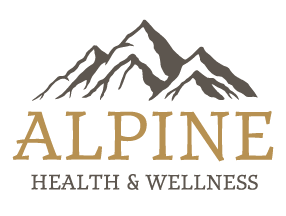Vitamin D is a hot topic these days and is part of the treatment protocol COVID-19 infections. There is a lot to be said about the amazing benefits of Vitamin D, but did you know that vitamin D may not exactly be a vitamin? A vitamin is something our body needs but cannot make and thus must be obtained through the diet (or through supplements). Vitamin D on the other hand can be made by our bodies. An inactive form of vitamin D can be made in our skin layers when we are exposed to direct sunlight which is then converted to active, usable vitamin D by the liver and kidneys.
As a primary care provider, most of the patients I screen for vitamin D deficiency are lacking in this important nutrient if not already supplementing. Due to living in a cold, cloudy climate throughout the winter and wearing sunscreen in the summer months to prevent skin cancer and aging, we do not get the sun exposure needed to maintain adequate vitamin D stores. Having a darker skin tone is a risk factor for deficiency as the increased melanin in the epidermal layer reduces the skin’s ability to produce vitamin D from sunlight. Obesity is another risk factor as subcutaneous fat can hold onto this fat-soluble vitamin and alter its release into circulation. Some Vitamin D can be obtained through the diet but not enough to keep levels where they should be for optimal immune health.
So why all the talk about Vitamin D in the first place? It is well known that vitamin D is needed for proper bone health and that low vitamin D can contribute to fatigue and depression. Most people are not aware of the vital role vitamin D plays in proper immune function and in reducing inflammation. Vitamin D receptors (VDR) are present in most tissues and cells throughout the body. Data shows that vitamin D deficiency can increase the risk of infections and predispose to autoimmune conditions. Even though it is recommended to start high dose vitamin D when diagnosed with COVID-19, they key to properly fending off infection is to have adequate stores of Vitamin D before you get sick.
Since almost anyone can benefit from a Vitamin D boost, what is the best way to do this? Cholecalciferol (D3) is generally the recommended form of vitamin D as this is the form made naturally by the skin when exposed to direct sunlight. Most multivitamins do not contain enough vitamin D3 so taking an additional D3 supplement is typically needed. Doses of 2000 to 4000 units daily are generally considered safe. People taking thiazide diuretics or calcium channel blockers for high blood pressure or taking the heart medication digoxin, should avoid high doses of vitamin D due to the potential for high blood calcium levels. People with chronic kidney disease should consult their kidney specialists about proper dosing of vitamin D.
Important take away points:
- Vitamin D is vital for good bone health and proper immune function.
- Most people are lacking in vitamin D if not supplementing.
- Low vitamin D can increase the risk of infections and autoimmune conditions.
- Daily supplementation with vitamin D3 at 2000 to 4000 units daily is generally considered safe for most people.
In summary, making vitamin D3 a part of your daily routine is a cheap and easy way to keep your body and immune system healthy! Call and schedule an appointment with Alpine Health & Wellness to have your vitamin D levels checked, and start optimizing this incredible non-Vitamin.
Achieving Wellness Together
Resources:
Vitamin D: The “sunshine” vitamin (nih.gov)
Vitamin D’s Effect on Immune Function – PubMed (nih.gov)
Please subscribe to our blog below:
